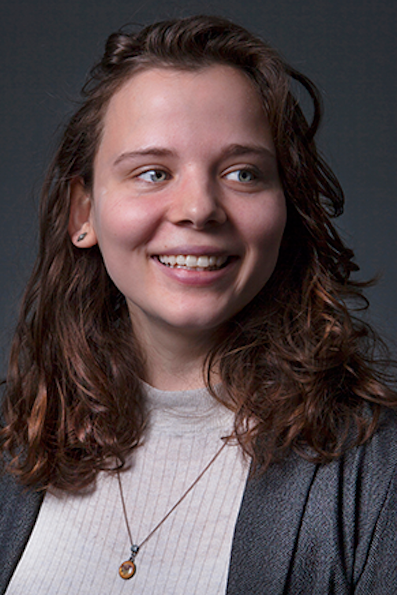Hannah has long been fascinated by the question of how a diverse society functions and how people behave. “My parents have a diverse Christian background and were later inspired by Eastern philosophies and worldviews such as Buddhism and Taoism. When I still lived at home, we regularly used to discuss spirituality together and how it gives meaning to life.”
She originally chose to study at the University of Humanistic Studies in Utrecht. “A range of specialist fields such as theology, philosophy, psychology and sociology come together there. I see myself as a secular humanist, so I’m not religious, and for me this university felt like a bubble with a lot of like-minded people.”
When Hannah switched to VU Amsterdam her first experiences were very different. “You can certainly say that I moved out of my own bubble there. With your own philosophy of life as starting point, in the Master’s specialization Interreligious Relations you interact with people who see issues of life and faith differently. This lets you expand your knowledge of various worldviews and also enter into dialogue with others. At VU Amsterdam you encounter a mix of beliefs and faiths, and that gave me many insights into my own views and values.”
Existential issues
Major existential and social issues are dealt with extensively during the Master’s. “And moreover, how the relationship between people of various faiths is formed in historical, current, international and contextual terms. That was the subject of the Bachelor’s and Master’s theses, too. The inter-faith encounters reveal a lot about the other person, but they also let you work together on societal and global challenges, such as climate change.”
Her course of studies has brought her many new insights. “It’s great to receive critical questions about your own assumptions and ideas. I’ve learned a lot, even if a viewpoint sometimes feels uncomfortable because an issue is located a long way from your personal values. But there will always be differences of opinion, and that’s fine.”
Combining research and practice
In her doctoral research, Hannah is taking a close look at the Emoena programme which promotes leadership in a multi-religious context. “This combination of research and practice is something that really appeals to me. It’s a new field of research and I’d like to make my contribution to this.” When it comes to her own career, she envisages working at the interface of research and education. “I’d like to develop curricula or courses to get young people enthusiastic about diversity.”
Hannah hopes that diversity will gain broad societal acceptance, be this a question of faith, gender, nationality or sexuality. “I recently saw an example of this on YouTube that really moved me: a popular Muslim vlogger and a Christian presenter who engaged in a really natural discussion across the faith boundaries, talking about life and death.”
